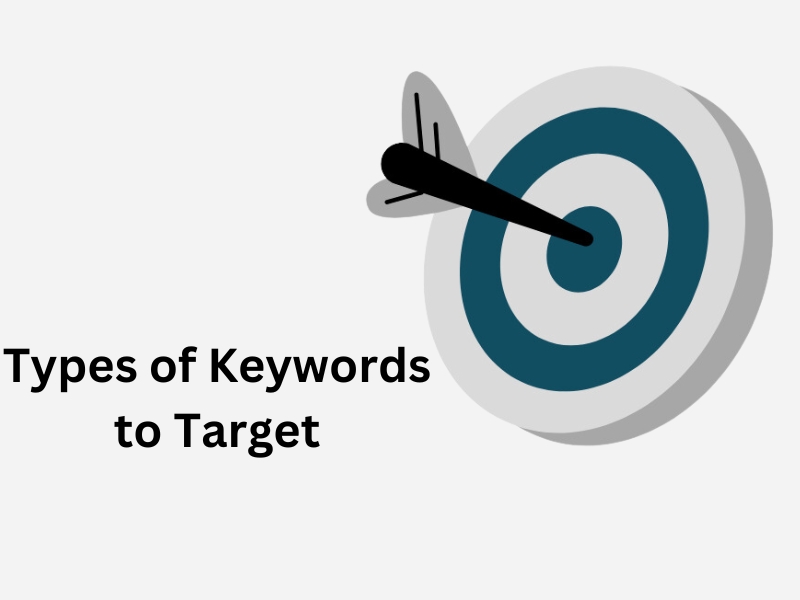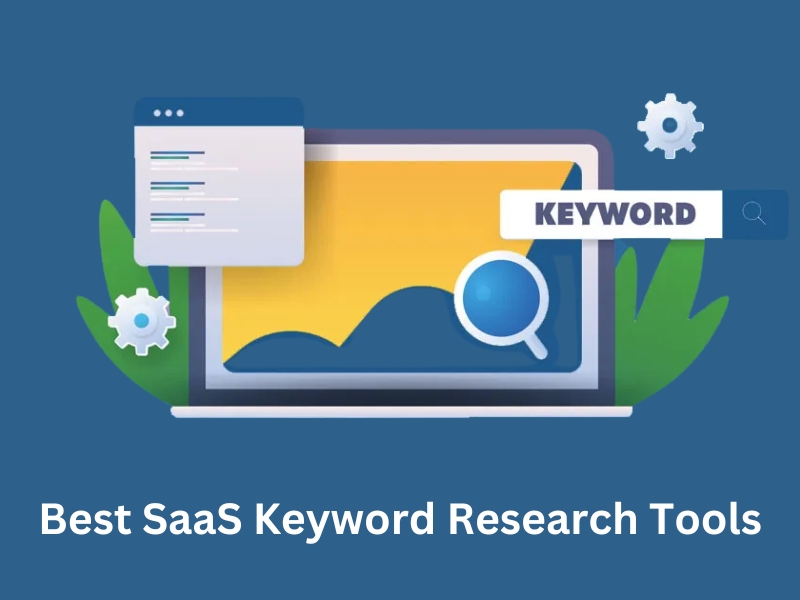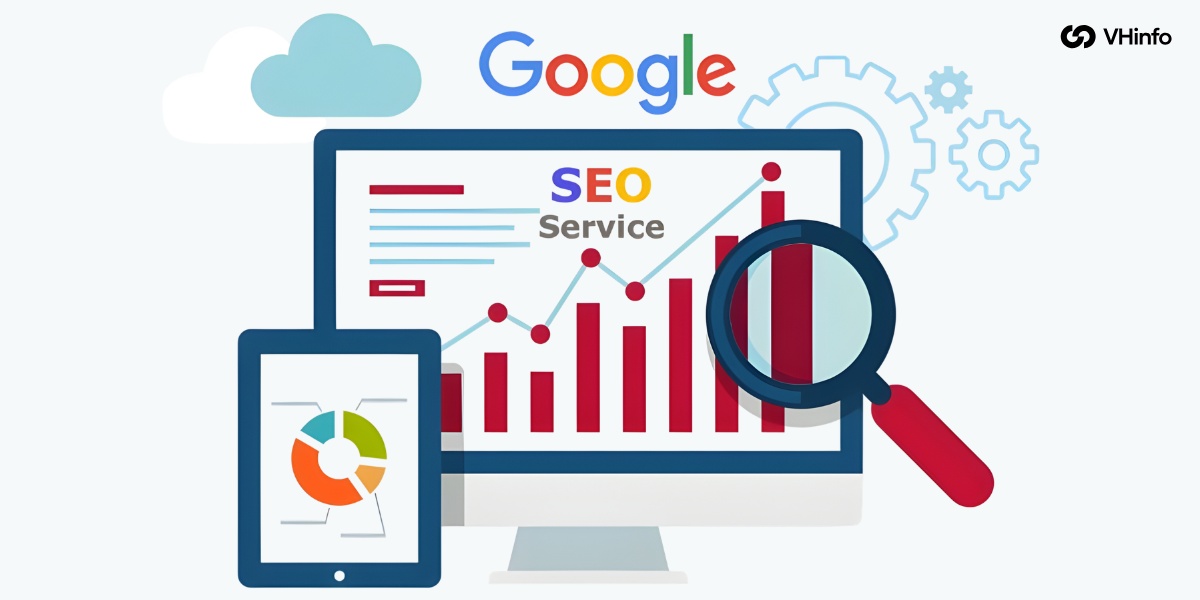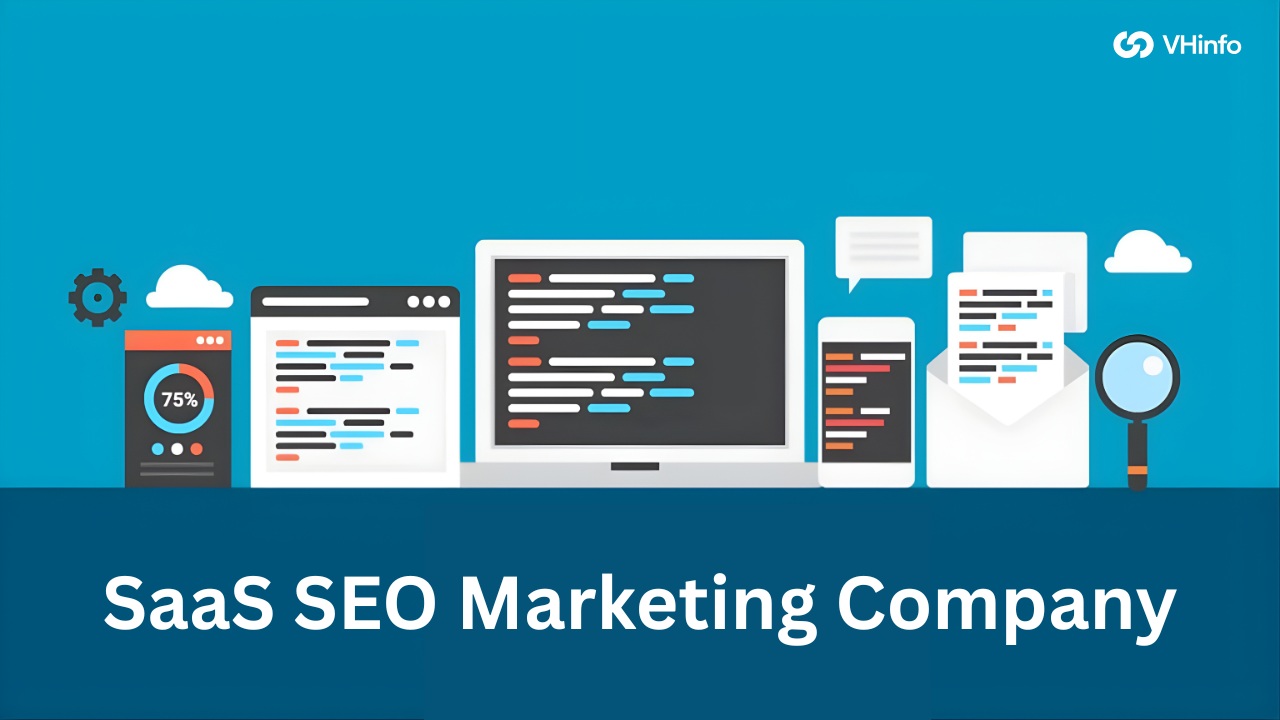As a SaaS company, driving organic traffic to your website is important for sustainable growth. One of the most effective ways to achieve this is through a well-executed keyword research strategy.
At VH-info, we understand the importance of SaaS keyword research and have helped numerous businesses improve their search engine rankings and attract potential customers through our proven link building services and SaaS content.
In this comprehensive guide, we’ll dive deep into the world of SaaS keyword research, sharing our expertise and actionable insights to help you create a winning content strategy.
What is SaaS Keyword Research?

SaaS keyword research is the process of identifying and analyzing the search terms and phrases that your target audience uses when looking for solutions related to your SaaS product. By understanding what your potential customers are searching for, you can optimize your website’s content to rank higher on the first page of search results and attract more qualified leads.
Importance of SaaS Keyword Research

- Uncovering Customer Needs and Wants: Effective keyword research helps you gain a deeper understanding of your target audience’s needs, preferences, and pain points. By identifying the terms they use in search queries, you can create content that directly addresses their concerns and positions your SaaS product as the ideal solution.
- Identifying Content Topics: SaaS keyword research is essential for generating relevant content ideas that resonate with your audience. By analyzing search volume and keyword difficulty, you can prioritize topics that have the potential to drive organic traffic and attract potential customers to your website.
- Enhancing On-Page Optimization: Including targeted keywords in your website’s content, meta tags, and URLs improves your on-page SEO. This helps search engines better understand the relevance of your content, increasing your chances of ranking higher in search results for those specific keywords.
What is the Purpose of SaaS Keyword Research?

How to Identify the Right Keywords For a SaaS Product?
To identify the right keywords for a SaaS product, start by looking at things from the customer’s perspective.
Consider what words your ideal customer would use to find your product and whether they mention any pain points. Utilize Google tools like Keyword Planner, Autocomplete, and Trends to gather insights into search volume and related terms.
Engage with various teams, including marketing, sales, and customer support, to brainstorm potential keywords based on customer reviews, queries, and unique selling points of the software.
The 4 Principles of Keyword Research

To get good at keyword research for SaaS, you need to know four main ideas:
- Search Intent & the Sales Funnel: Understanding search intent is important for creating content that aligns with the user’s needs at different stages of the sales funnel. By categorizing keywords according to informational, navigational, commercial, and transactional intent, you can provide the right content experience and guide users toward conversion.
- Keyword Difficulty & Search Volume: Keyword difficulty and search volume are essential metrics to consider when prioritizing your target keywords. Focus on keywords with low difficulty that are easier to rank for initially, and as you establish topical authority, expand your focus to cover new terms. Use keyword research tools to assess monthly search volume and competition levels.
- Topical Authority & Search Rankings: Building topical authority is key to improving your search rankings for related keywords. By creating comprehensive, high-quality content around a specific topic, you signal to search engines that your website is a valuable resource in that niche. This helps you rank for a wider range of relevant keywords and establishes your SaaS brand as an industry leader.
- Keyword Clustering: Keyword clustering involves grouping related keywords together to create targeted content pieces that cover a topic in-depth. By organizing your keywords into clusters, you can develop a more focused and effective content strategy that addresses your audience’s needs and helps you rank for multiple related terms.
13 SaaS Keyword Research Methods That Work

Effective keyword research for SaaS is not just about entering words into a tool. It needs a well-rounded approach. This means combining customer insights, looking at what competitors do, and thinking strategically.
You should start by knowing your ideal customer profile (ICP). You can also use tools like Google Suggest. With these 13 methods, you will gain the skills and tools you need to find valuable keyword opportunities. This will help you grow your content strategy.
- ICP & the Anti-ICP: Create content around the keywords your target audience, or Ideal Customer Profile (ICP), is searching for. Simultaneously, identify the keywords that your Anti-ICP (customers you don’t want to attract) might use, and avoid targeting those terms.
- Analyze Competitor Keywords: Conducting a thorough competitor analysis can reveal valuable keyword opportunities. Use tools like Ahrefs or SEMrush to identify the keywords your competitors are ranking for and find gaps in their content strategy that you can capitalize on.
- Focus on Jobs to be Done: Identify the specific tasks or “jobs” your target audience is trying to accomplish, and create content that addresses those needs.
- Dig Into Google Ad Converters: Analyze the keywords that drive conversions in your Google Ads campaigns. These high-performing terms can provide insights into the language your target audience uses and help you prioritize keywords for your organic content strategy.
- Use Reviews to Get Customer’s Search Intent: Explore customer reviews on third-party sites like G2 and Capterra to uncover the terms and phrases your target audience uses when discussing your SaaS product or competitors. These insights can help you identify valuable keyword opportunities and better understand customer search intent.
- Create a Customer Journey Map: Map out the different stages of your customer journey, from awareness to consideration to decision, and identify the types of keywords that customers use at each stage. This approach ensures that your keyword strategy aligns with the user’s intent throughout their journey.
- Analyze Sales Calls: Review sales call transcripts to identify common questions, concerns, and pain points that potential customers mention. Use these insights to generate keyword ideas and create content that addresses their needs at various stages of the sales funnel.
- Leverage the Power of Google Suggest: Use Google’s autocomplete feature to discover related search terms and long-tail keywords. Start typing your seed keyword into the search bar and take note of the suggestions that appear. These queries reflect real user searches and can provide valuable keyword ideas.
- Understand Your Key Switch Moments: Identify the key moments or events that trigger potential customers to search for a solution like your SaaS product. Understanding these “switch moments,” you can target keywords that address the specific pain points and challenges that lead users to seek out your offering.
- Consider Adjacent Use Cases: Expand your keyword research beyond your core product features and explore adjacent use cases. By identifying complementary solutions or industries that your SaaS product can serve, you can tap into new keyword opportunities and attract a wider audience.
- Extend the Top of the Funnel Keywords: Don’t limit your keyword research to bottom-of-the-funnel terms. Identify broader, informational keywords that target users in the early stages of their journey.
- Use Topic Clusters and Pillar Content Strategy: Organize your content around topic clusters, with a central pillar page that covers a broad topic and multiple cluster pages that dive into more specific subtopics. This strategy helps establish your topical authority and improves your search rankings for a wide range of related keywords. For instance, when you’re looking into project management software, you could focus on keywords like “team collaboration,” “project tracking,” or “workflow automation.”
- Make AI Your Friend: Leverage AI-powered tools like ChatGPT to generate keyword ideas and analyze search intent. These tools can provide valuable insights and help you uncover new keyword opportunities that you may have overlooked.
Types of Keywords to Target

Informational Keywords
Informational keywords are the general terms people look for when they want information. These searches often start with phrases like “how to,” “what is,” or “guide to.”
You can use informational keywords to educate people and earn their trust. Make helpful content that answers your target audience’s common questions and pain points. Show your knowledge without pushing too hard for sales.
Using informational keywords in your content marketing can help make your brand a leader in its field and support your leads. This way, you can help them move further along the sales funnel.
Commercial Keywords
Commercial keywords show that people are ready to buy. These are the words users type when they are looking at different solutions, checking out features, or learning about certain SaaS products. They often have terms like “best,” “top,” “review,” or “compare.”
Your SEO efforts for these commercial keywords should focus on showing what makes your product special. You should also share customer reviews and do detailed comparisons that make your SaaS product stand out as the best choice.
Transactional Keywords
Transactional keywords show that people want to buy. These are the words users type when they are ready to make a purchase, sign up for a trial, or ask for a demo. They usually include phrases like “buy now,” “free trial,” “pricing,” or “discount.”
Your content with these keywords should aim to turn leads into paying customers. Point out the main benefits of your product. Give strong calls to action, and make it easy for them to move forward.
Simplify the buying process. Provide clear pricing details. Share success stories from customers to help new buyers feel confident about their decision.
Navigational Keywords
Navigational keywords are specific words that users look for when they already know about your brand. They want to find your website or certain pages. These keywords usually include your brand name, product name, or similar words.
Even though navigational keywords do not directly affect your organic traffic growth, they are still significant. They help with brand awareness and create a smooth user experience. Make sure your website is set up well for these keywords. This will help users find what they need easily.
Keep an eye on your Google Search Console data. This will help you spot any strange navigational keywords that could show user confusion or missing content on your site.
Using SaaS Keyword Data For Content Strategy

- Creating Content Clusters: Use your keyword research data to create content clusters around specific topics. Develop a pillar page that provides a comprehensive overview of the topic, and then create cluster pages that dive deeper into subtopics and target more specific long-tail keywords. This approach helps establish your topical authority and improves your search rankings for a wide range of related terms.
- Optimizing Existing Content: Analyze your existing content and identify opportunities to optimize it for targeted keywords. Update meta tags, headers, and body content to include relevant terms and improve on-page SEO. By refreshing and optimizing your old content, you can drive more organic traffic and keep your website relevant in the eyes of search engines
- Monitoring and Adjusting: Regularly monitor your keyword rankings and organic traffic to assess the effectiveness of your content strategy. Use tools like Google Search Console and Ahrefs to track your progress and identify areas for improvement. As you gather more data and insights, adjust your keyword targeting and content creation efforts to maximize your SEO results.
Advanced Techniques For SaaS Keyword Research

As you get used to the basics of SaaS keyword research, it’s time to look at advanced methods. These methods can open up more chances and make your content stand out.
They are more than just finding keywords. They focus on knowing what users want, using search data, and adjusting your content to fit the needs of your target audience.
- Utilizing Long-Tail Keywords: Long-tail keywords are longer, more specific phrases that target a narrower audience. While they may have lower search volume, they often have higher conversion rates because they match the user’s intent more closely. Including long-tail keywords in your content strategy can help you attract more qualified leads and drive better business results.
- Finding Long-Tail Keywords: To find long-tail keywords, use tools like Google Keyword Planner, Ahrefs, or SEMrush. Look for phrases that are more specific and have a lower search volume than your primary keywords. You can also use Google’s autocomplete feature and “People Also Ask” section to uncover long-tail keyword ideas that reflect real user queries.
- Leveraging Search Intent: Understanding and leveraging search intent is important for creating content that resonates with your target audience. Analyze the search results for your target keywords to determine the type of content that Google deems most relevant. By aligning your content with the user’s intent, you can improve your search rankings and provide a better user experience.
Common Mistakes in SaaS Keyword Research

SaaS keyword research might seem simple, but it has many challenges.
- Mistake #1: Focusing On Volume Over Buying-Intent: One common mistake is prioritizing keywords with high search volume without considering the user’s buying intent. While high-volume keywords may drive more traffic, they may not necessarily attract qualified leads who are ready to purchase your SaaS product.
- Mistake #2: Ignoring High Buying Intent Because of Low Search Volume: Another mistake is overlooking keywords with low search volume but high buying intent. These keywords may not drive as much traffic, but they can attract users who are further along in the sales funnel and more likely to convert.
- Mistake #3: Going After Keywords Just Because Your Competitors Are: Blindly targeting keywords just because your competitors are ranking for them can lead to a misaligned content strategy. Instead, focus on keywords that are relevant to your specific SaaS product and target audience, even if they differ from your competitors.
- Mistake #4: Assuming You Can’t Compete With Big Name Competitors: Don’t assume that you can’t compete with larger, more established competitors for certain keywords. By creating high-quality, targeted content and building topical authority, you can outrank even the biggest players in your industry.
SaaS Keyword Research Best Practices

The keyword research process is a journey that never stops. To improve your SaaS SEO strategy, follow these best practices:
- Focus on relevance, not just search volume.
- Prioritize keywords with high buying intent.
- Create content that aligns with search intent.
- Use long-tail keywords and secondary keywords to attract qualified leads.
- Regularly update and optimize your content.
- Monitor your keyword rankings and adjust your strategy as needed.
- Leverage competitor analysis to identify gaps and opportunities.
- Collaborate with sales and customer support teams to gather insights.
- Use a variety of keyword research tools and methods.
- Continuously expand your keyword universe to stay ahead of the competition.
Best SaaS Keyword Research Tools

- Google Search Console: Google Search Console is a free tool that provides valuable insights into your website’s search performance. Use it to identify the keywords that are driving organic traffic to your site and uncover new keyword opportunities.
- Ahrefs: Ahrefs is a comprehensive SEO tool that offers robust keyword research features. Use its Keywords Explorer to find new keyword ideas, analyze search volume and difficulty, and spy on your competitors’ keyword rankings.
- Google Keyword Planner: Google Keyword Planner is a free tool designed for Google Ads campaigns, but it also provides useful data for organic keyword research. Use it to get search volume estimates and identify related keywords.
- Keyword Surfer (Surfer SEO): Keyword Surfer is a free Chrome extension that provides search volume and CPC data directly on the Google search results page. Use it to quickly assess the popularity and competitiveness of your list of keywords.
- Google Trends: Google Trends is a free tool that allows you to analyze the popularity of organic search terms over time. Use it to identify seasonal trends, compare keyword popularity, and uncover rising keyword opportunities.
FAQ’s:
How Do You Do Keyword Research For SaaS Products?
To do keyword research for SaaS products, start by understanding your target audience and their needs. Use a combination of methods, including brainstorming, competitor analysis, and keyword research tools, to identify relevant keywords for your SaaS tool. Focus on terms that align with your product’s features and benefits, as well as the pain points it solves.
Can I Just Pick Any Keywords For My SaaS Brand?
No, you shouldn’t just pick any keywords for your brand’s SaaS marketing. Your keyword strategy should be based on thorough research and analysis, taking into account factors like relevance, search volume, keyword difficulty, and user intent. Choosing the wrong keywords can lead to ineffective content and wasted resources.
Why Should I Consider “Keyword Intent” When Doing My Research?
Considering keyword intent is important because it helps you create content that matches the user’s needs and expectations. By understanding the purpose behind a search query, you can tailor your content to provide the most relevant and valuable information, improving your search rankings and user engagement.
How Can Understanding User Intent Improve My Keyword Strategy?
Understanding user intent allows you to create a more targeted and effective keyword strategy.Aligning your content with the user’s goals at each stage of the sales funnel can help attract more qualified leads, guide them through the buyer’s journey, and ultimately drive more conversions for your SaaS product.
How Often Should I Update My SaaS Keyword Strategy?
Your SaaS keyword strategy should be updated regularly to stay ahead of industry trends, changes in search algorithms, and evolving customer needs. Aim to review and adjust your keyword targeting at least quarterly, and be prepared to adapt your content strategy as needed based on performance data and insights.
Conclusion
SaaS keyword research is a critical component of any successful content marketing strategy.
Understanding your target audience, analyzing competitor keywords, and using advanced techniques like long-tail targeting and search intent optimization can help you create content that drives organic traffic, attracts qualified leads, and positions your SaaS product for sustainable growth.
At VH-info, we specialize in helping SaaS companies achieve their SEO goals through proven link building services and expert guidance. By partnering with us, you can enhance your online presence, improve your search rankings, and ultimately drive more revenue for your business.
Staying up-to-date with industry best practices and leveraging the right tools and resources can help you create a winning SaaS Website SEO strategy that delivers long-term results.



